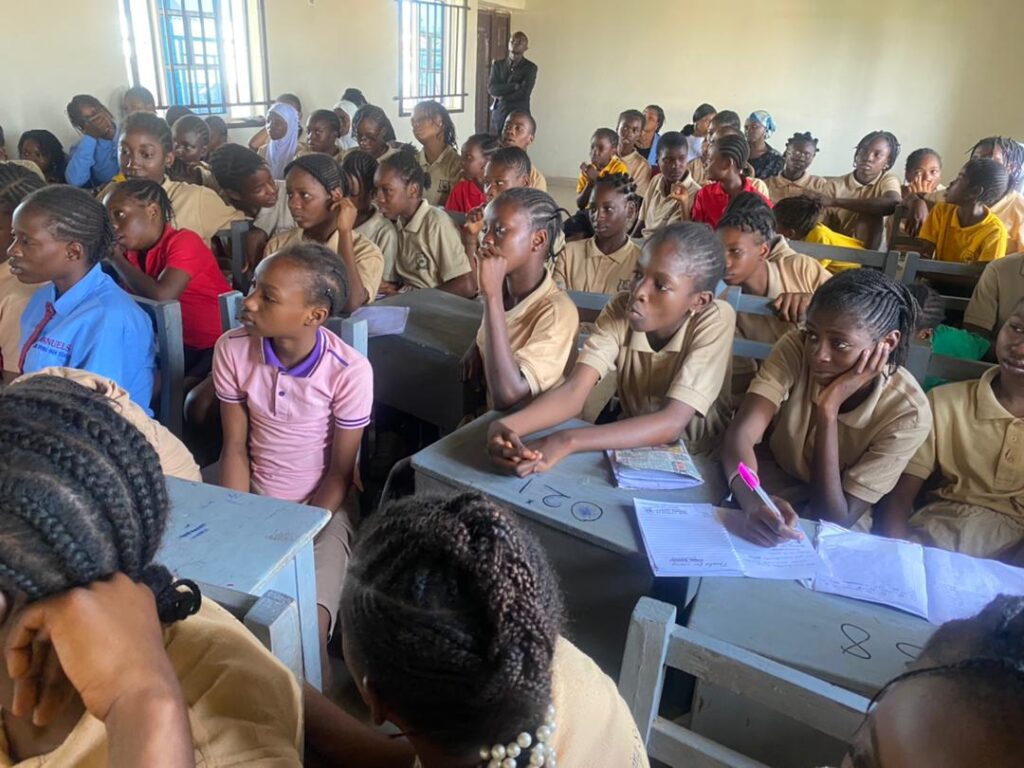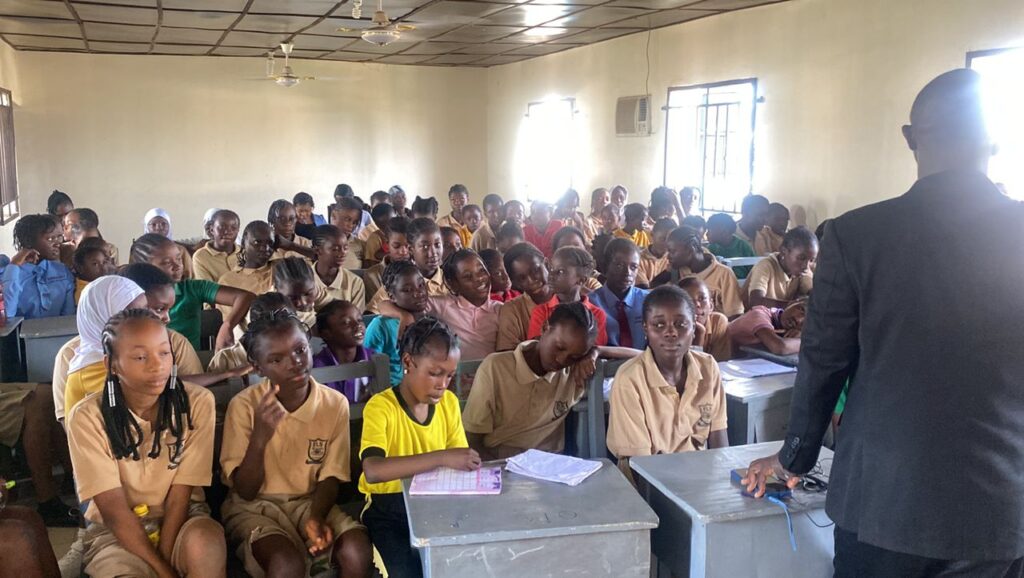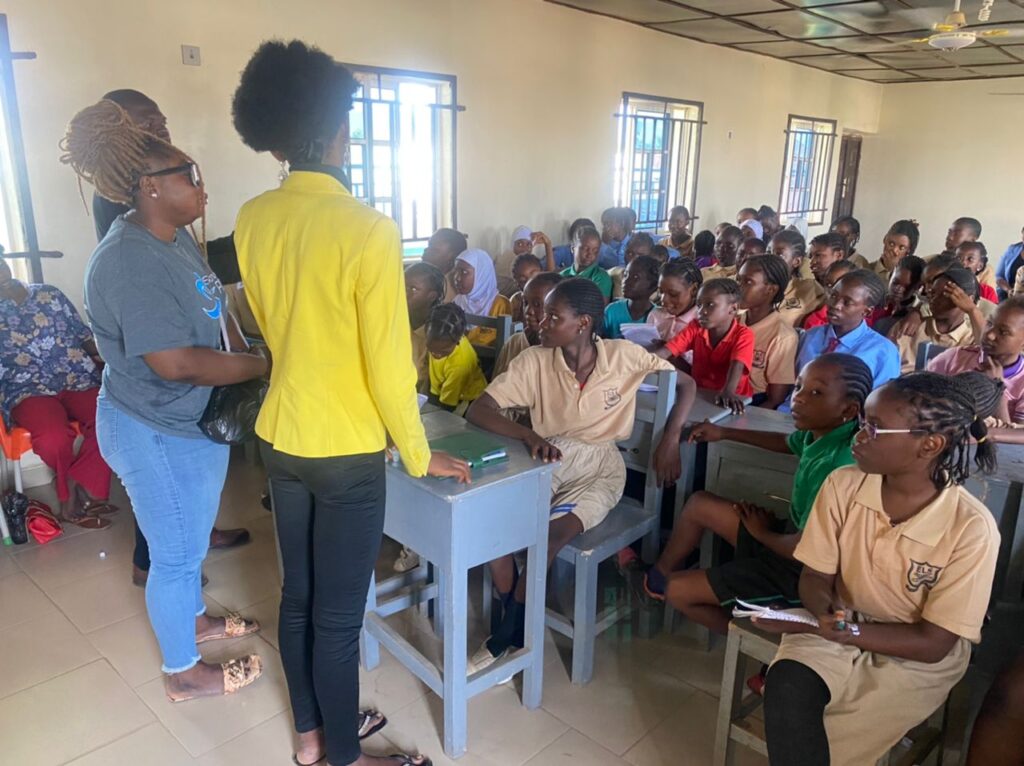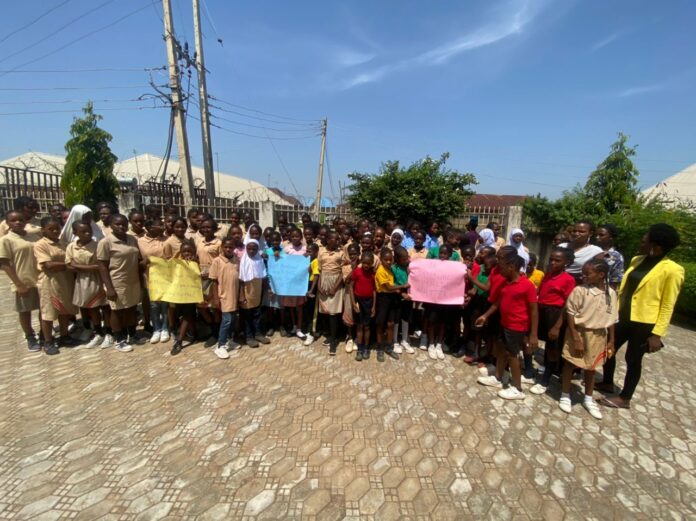The COMFORT EKWO ABLE MINDS INITIATIVE—-CEAMI, was in Emmanuel Learning Spring Academy, to teach and educate adolescent school girls, on puberty, sexual and reproductive health rights (SRHR), and menstrual health hygiene.
“Having access to sexual and reproductive health and rights can decrease child marriage, decrease teenage pregnancies and prevent transmission of sexually transmitted infections. It is a topic that affects so many different realms of people’s life. However, it is often not seeming to matter as much because it is assumed to not necessarily outright affect food, shelter, or health, but it does.”

According to recent figures from the UN Population Fund (UNFPA), 1.8 billion adolescents – people aged 10-19 years old – make up more than 16 per cent of the world’s population. Many young people see their potential hindered by social norms, cultural attitudes, institutional and structural barriers, and violations of their fundamental rights under their age of the High Commissioner for Human Rights.
After many conversations with these preteen/teenage girls, we discovered that 80% of them have low or no knowledge about puberty, SRHR, and menstrual health hygiene.
We recognize how frightening it can be to feel like you don’t understand what is happening to your body – many of us will have heard stories of young people unknowingly starting their periods and fearing they were wounded! We want to make sure that young people have all the information that is helpful and relevant to them, to reduce stigma and shame. We believe that by equipping young people with this information, they will be better placed to navigate their health and bodies going forward.
CEAMI was able to teach and educate over 70 adolescent girls, about puberty, SRHR, and MHH/MHM, and many questions were raised and attended to.
From the conversation, most girls do toilet and sanitation facilities at schools and lack of access to sanitary products means girls do not have the confidence to go to and manage their periods at school. In Nigeria, only a few women and girls have access to sanitary products. The rest rely on materials such as old, dirty rags, newspaper, tissue, dirt, and other unhygienic materials that often lead to infection and embarrassment because of leaks and odour.






